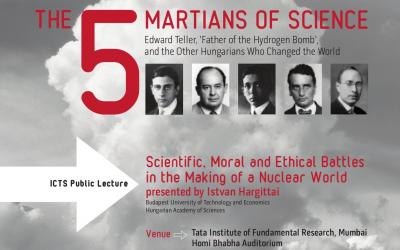Historical circumstances brought together an extraordinary group of scientists during the first half of the twentieth century that included the aerodynamicist Theodore von Kármán, the physicists Leo Szilard, Eugene P. Wigner, and Edward Teller, and the mathematician John von Neumann. These Jewish-Hungarians first left Hungary for Germany, then were forced out of Europe, and in the United States they became instrumental in the defense of the Free World during World War II and the Cold War. In addition to their extraordinary achievements in basic science, they significantly contributed to the creation of stored-programmed computers, nuclear engineering, nuclear weapons, and the creation of the modern American air force. The lessons of their lives and oeuvres will be discussed with emphasis on the most controversial one, Edward Teller, known also as “the father of the Hydrogen Bomb.”
István Hargittai (istvan.hargittai@gmail.com) is research professor at the Budapest University of Technology and Economics, member of the Hungarian Academy of Sciences, Norwegian Academy of Science and Letters, and the Academia Europaea (London). He is a Ph.D. of Eötvös University (Budapest), D.Sc. of the Hungarian Academy of Sciences, Dr.h.c. of Moscow State University, the University of North Carolina, and the Russian Academy of Sciences. His recent books include the six-volume Candid Science series, The Road to Stockholm, the Martians of Science, The DNA Doctor, Visual Symmetry, Judging Edward Teller, and Drive and Curiosity.


